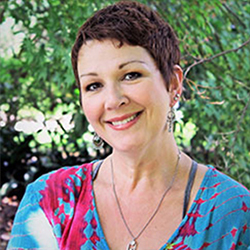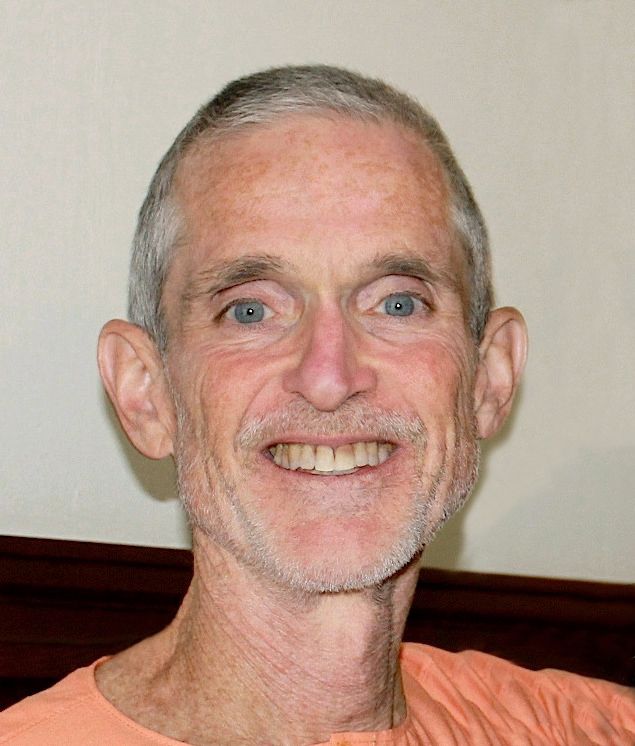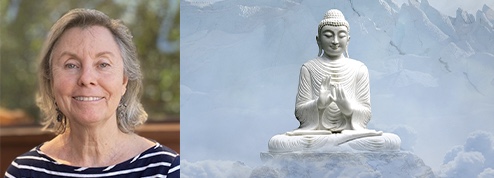Strengthen Your Container with Heartful Meditation
Please register in advance. When you register via the link above, you help Yogaville support Integral Yoga San Francisco as an affiliate. Thank you!
DATE & TIME DETAILS:
Live sessions with Karla
Saturday, Jun. 26
10 am–12 pm and 3–5 pm ET
Sunday, Jun. 27
10 am–12 pm and 3–5 pm ET
The ultimate goal of Yoga is the realization of our True Selves—that part of us that is always whole, peaceful, and ever-connected with the All. The many struggles and sufferings of life, including grief and loss, contribute greatly to our forgetting the Truth of who we are. Meditation is one of the tools of Yoga that can help us find a place of peace and equanimity—especially in times of pain, grief, heartbreak, and loss.
Many of us struggle with meditation and feel that we can’t quiet our minds or find a peaceful place. This is particularly true when we are in pain. This program will help you understand the nature of the mind and why you don’t have to struggle.
In this retreat you will:
- Learn the theory and practice of meditation and how it applies to the state of loss and grief
- Understand current science about why meditation is so helpful
- Learn and practice multiple types of supported and guided meditation including mantra, witnessing, visualization, mindfulness, focused attention, metta (loving kindness), restful awareness, and tratak (gazing)
- Practice gentle movement and pranayama (breath practices) to support your meditation practice
- Experience and practice guided Yoga Nidra for deep relaxation and healing on all levels of being
- Learn ways to establish and begin to feel confident in your own personal practice
- Have the opportunity to practice daily with Karla and the retreat sangha for a week after the program
Meditation can help us learn to manage and move through the most difficult times of life and can become an anchor in the midst of a chaotic world. Join Karla for two days of connection and compassion to learn about and practice this ancient tool that has proven again and again to support humankind through pain and suffering.
This program is for both beginners and experienced meditators and will focus on how meditation is specifically helpful in grief and loss.
Live sessions with Karla on Saturday and Sunday at 10 am–12 pm and 3–5 pm EDT.
You will also have the additional opportunity to continue to practice with Karla daily for the week following the workshop to create a foundation and become more secure in your own steady practice. Bonus Sessions in Eastern Time on June 28–July 1 at 5–5:30 pm (15 min of guidance + 15 min of meditation) and July 2 at 5–6 pm (includes extra time for Q&A).
You will have access to the video recordings for 8 weeks, until August 22.
In addition, you will have access to the Ashram’s Live Hatha Yoga classes at 5 pm ET, recorded Ashram meditations, and inspiring talks with Sri Swami Satchidananda. You will also have access to an online social community to connect and communicate with other participants about this course.
Continuing Education (CE) Opportunities
Yoga Alliance (YA): Approximately 8 contact hours. You can input your contact hours using your YA login information.
Integral Yoga Teachers Association (IYTA) can provide you a CE certificate with your program’s total contact hours for a $10 fee (free for IYTA members.) For more information, email ce@iyta.org.
Testimonials
“Karla Helbert is a compassionate and highly knowledgeable expert on grief and loss. Her expertise in the practice of Yoga is meaningful to me because I feel that as a Yoga instructor and someone who has practiced yoga for many years, this is a platform that makes the most sense for me to try and process my grief. The tools, rituals and practices she presents are exceptionally meaningful and I’m hopeful that over time they will assist me in being able to feel whole again. My time spent with Karla Helbert in her Yoga retreat was a weekend spent in deep reflection and focus on my son, and any time I have doing that is a gift.” — Beth Ann Nohmy-Johnson
“Karla is very knowledgeable on the topic of Yoga… in relation to grief and trauma. She led the participants in activities and shared information that helped me at the time and will continue to be valuable to me and my family as we live with a traumatic loss of an immediate family member.” — Amy Griffin
“With deeply grounded wisdom, Karla Helbert simultaneously affirms the unmitigated pain of losing someone we love and offers trustworthy tools to help us navigate the wilderness of loss. By engaging the ancient systems of Yoga, we are guided to embrace our grief as the sacred state it is and allow ourselves to connect with the Love that “yokes” us together for all of time.” — Mirabai Starr, author of Caravan of No Despair: A Memoir of Loss and Transformation (SoundsTrue)
Presenter
 Karla Helbert, LPC, E-RYT 500, YACEP, C-IAYT is a licensed professional counselor (LPC), Compassionate Bereavement Care® provider, Yoga therapist, and certified Integral Yoga teacher. Her life was irrevocably changed when her son died of a brain tumor in 2006. Karla’s award-winning book, Yoga for Grief and Loss, is endorsed by Integral Yoga® leaders and teachers as well as other experts in the fields of both Yoga and loss. The book examines how the paths of Yoga can support us in trauma and grief. Relying on ritual, meditation, creative expression, and the teachings of Yoga, Karla honors the pain and the joy which coexist in all of life.…
Karla Helbert, LPC, E-RYT 500, YACEP, C-IAYT is a licensed professional counselor (LPC), Compassionate Bereavement Care® provider, Yoga therapist, and certified Integral Yoga teacher. Her life was irrevocably changed when her son died of a brain tumor in 2006. Karla’s award-winning book, Yoga for Grief and Loss, is endorsed by Integral Yoga® leaders and teachers as well as other experts in the fields of both Yoga and loss. The book examines how the paths of Yoga can support us in trauma and grief. Relying on ritual, meditation, creative expression, and the teachings of Yoga, Karla honors the pain and the joy which coexist in all of life.…
Learn more about Karla Helbert, LPC, E-RYT 500, YACEP, C-IAYT






